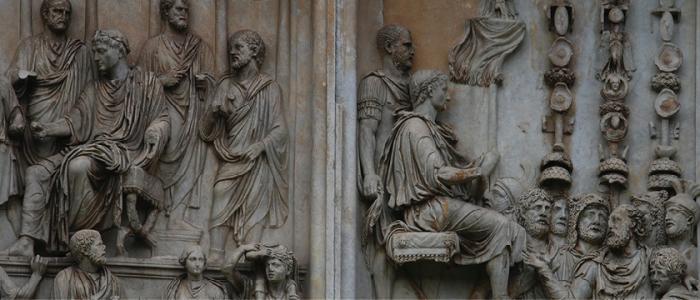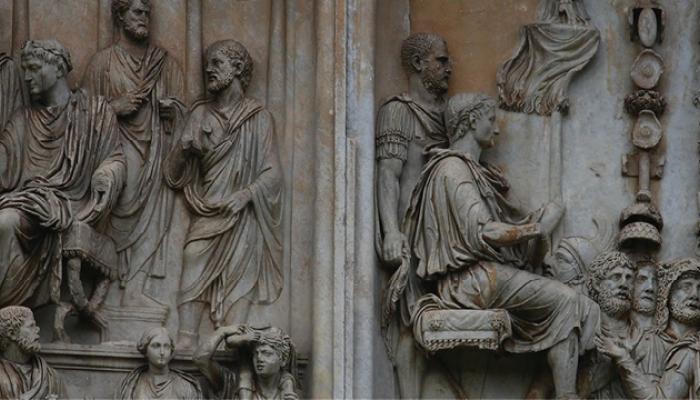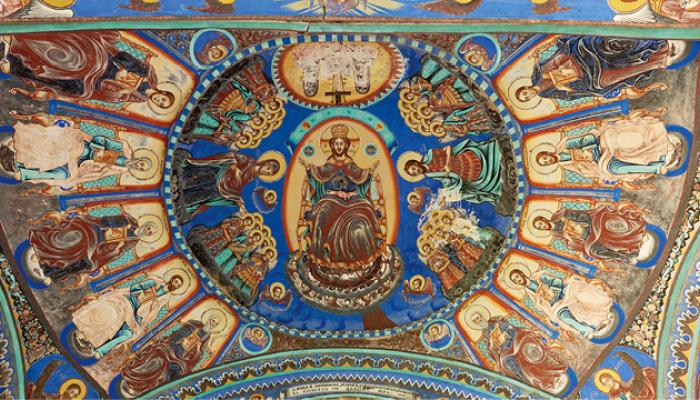
2.20 Cos’è cambiato con l’Imperatore Costantino?
Nel 312 Costantino sconfisse i suoi oppositori e divenne di conseguenza il capo dell’intero Impero Romano. Sebbene venisse battezzato solo alla fine della sua vita, fu di fatto il primo imperatore cristiano.
Nell’ “Editto di Milano”, Costantino decretò che i cristiani non dovessero più essere perseguitati, e che venisse restituito loro quanto gli era stato confiscato. I cristiani poterono ora vivere apertamente la loro fede, e furono anche coinvolti nell’amministrazione dell’impero.
The Council of Nicaea, the first Ecumenical Council, [was] convoked by the Emperor Constantine in May 325 A.D. to ensure Church unity. The Nicene Fathers were thus able to address various issues and primarily the serious problem that had arisen a few years earlier from the preaching of the Alexandrian priest, Arius... Constantine was not so much concerned with theological truth but rather with the unity of the Empire and its political problems. [Pope Benedict XVI, General Audience, 20 June 2007]





